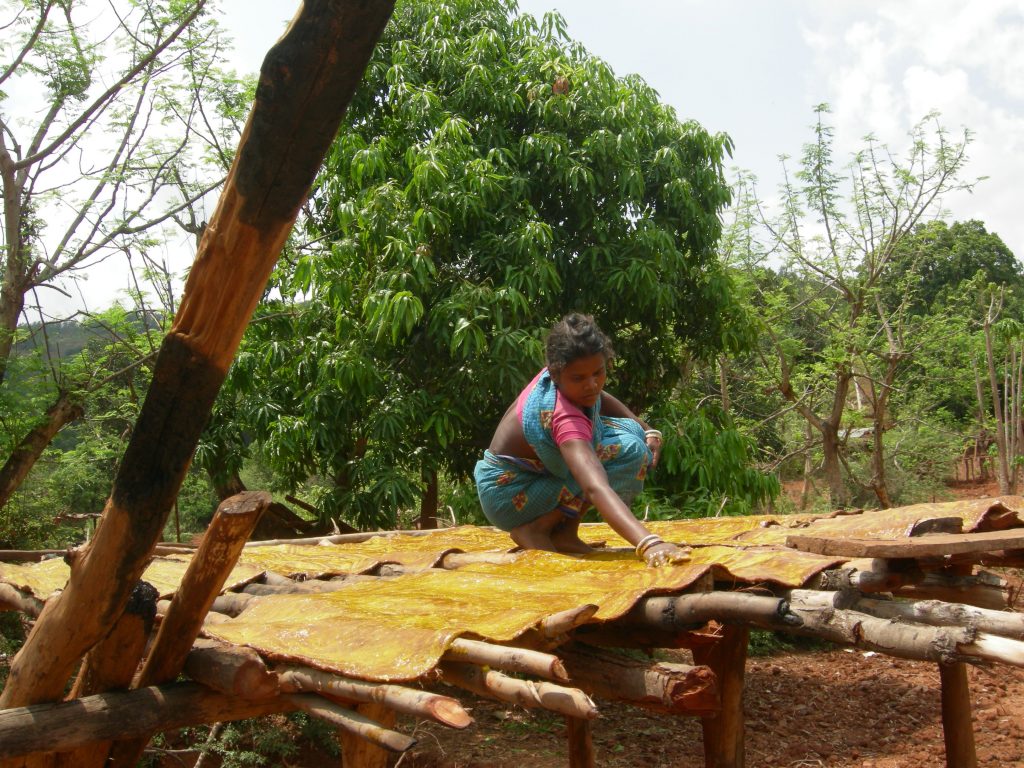Keonjhar: Dry mango pulp has big demand in the market with several companies selling the product at high price, but poor tribals preparing the mango pulp in various parts of Keonjhar district fail to get a right price in the absence of marketing facility.
Huge quantities of indigenous and hybrid varieties of mango are produced in almost all parts of the district. A large portion of mango crop gets rotten when the fruits are unsold. If the district had a cold storage facility, the King of Fruits could have fetched a better price for the farmers.
Usually, tribals use unsold mangoes to make pulp. The dry mango pulp has a vast potential to enrich tribals, according to experts, though the trade may be seasonal. But the locals need to get government support for this, they say.
They added that lack of marketing and cold storage facilities, awareness and skills in pulp processing have been major hurdles in the development of mango pulp trade.
More importantly, it could play a vital role in improving the economic condition of the tribals in the district. Now, they are exploited, season after season, by traders who take advantage of the tribals’ innocence and ignorance about mango pulp price and market demand.
For example, a block of dry mango pulp measuring 6 inches in width and 5ft in length is generally sold between Rs 50 and Rs 80. Sometimes, traders undervalue the pulp on the basis of its thickness. However, they make big money by selling it for Rs 200 to 250 per kg. The mango pulp is supplied to many cities in West Bengal, Bihar and Uttar Pradesh apart from New Delhi, Mumbai, Bangalore and several other metropolises.
Retired OAS Officer Kumarmani Tanti said, “To commercialise mango pulp making, the government should provide the tribals necessary support in marketing and cold storage facilities, apart from making them aware of its trade potential. Their skills development is also necessary to ensure preparation of quality pulp.”
Ramray Murmu, chairman of the Special Development Council, said that tribals invest a lot of labour in collecting mangoes from forests and drying the pulp in the sun. Sadly, they do not get the price that is commensurate with the labour while traders make huge profits, he added.
“In rainy season, preserving mangoes for long and drying the pulp is a difficult proposition. Due to lack of training, the tribals make pulp, but fail to ensure its quality. The government should come up with schemes to support them in this traditional trade for their economic development,” Ramray said.
PNN
